Local Author Sara Reish Desmond Debuts Short Story Collection
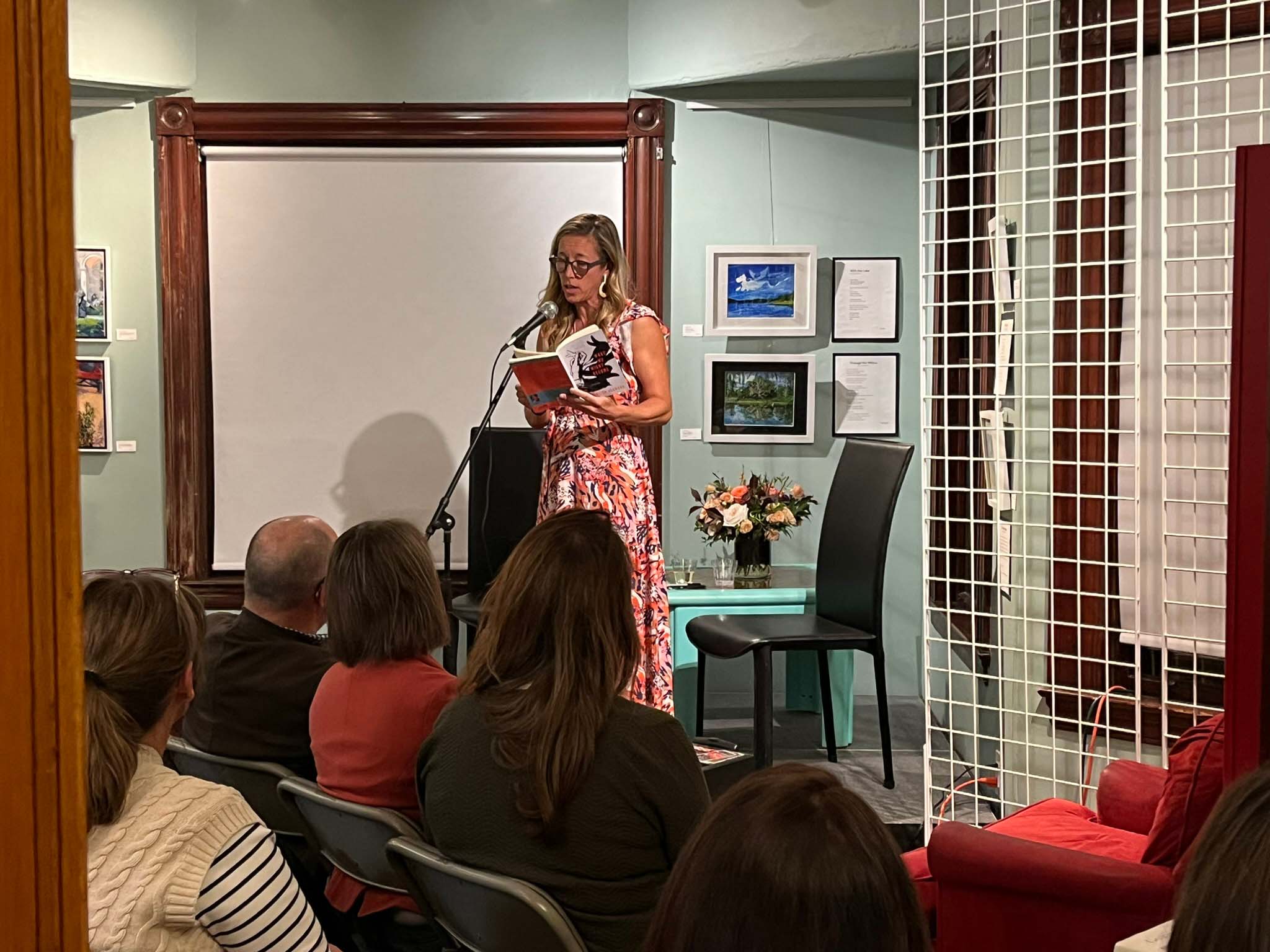
Sara Reish Desmond reading at the book launch
Photo from Sara Reish Desmond
This month, Melrose resident and author Sara Reish Desmond launched her debut short story collection, What We Might Become. On October 15th, a full house at Follow Your Art Community Studios, in collaboration with Molly’s Bookstore, listened to her read from “Clay Girls,” the first story in the collection.
The eleven stories in What We Might Become were written over the course of the last 16 years, as Desmond pursued a graduate degree in writing, taught high school English, and raised her two daughters. While the stories have distinct characters, settings, and conflicts, they all explore what Desmond describes as liminality and threshold experiences - and they all, in some way, touch on grief, and the relationship between parents and children.
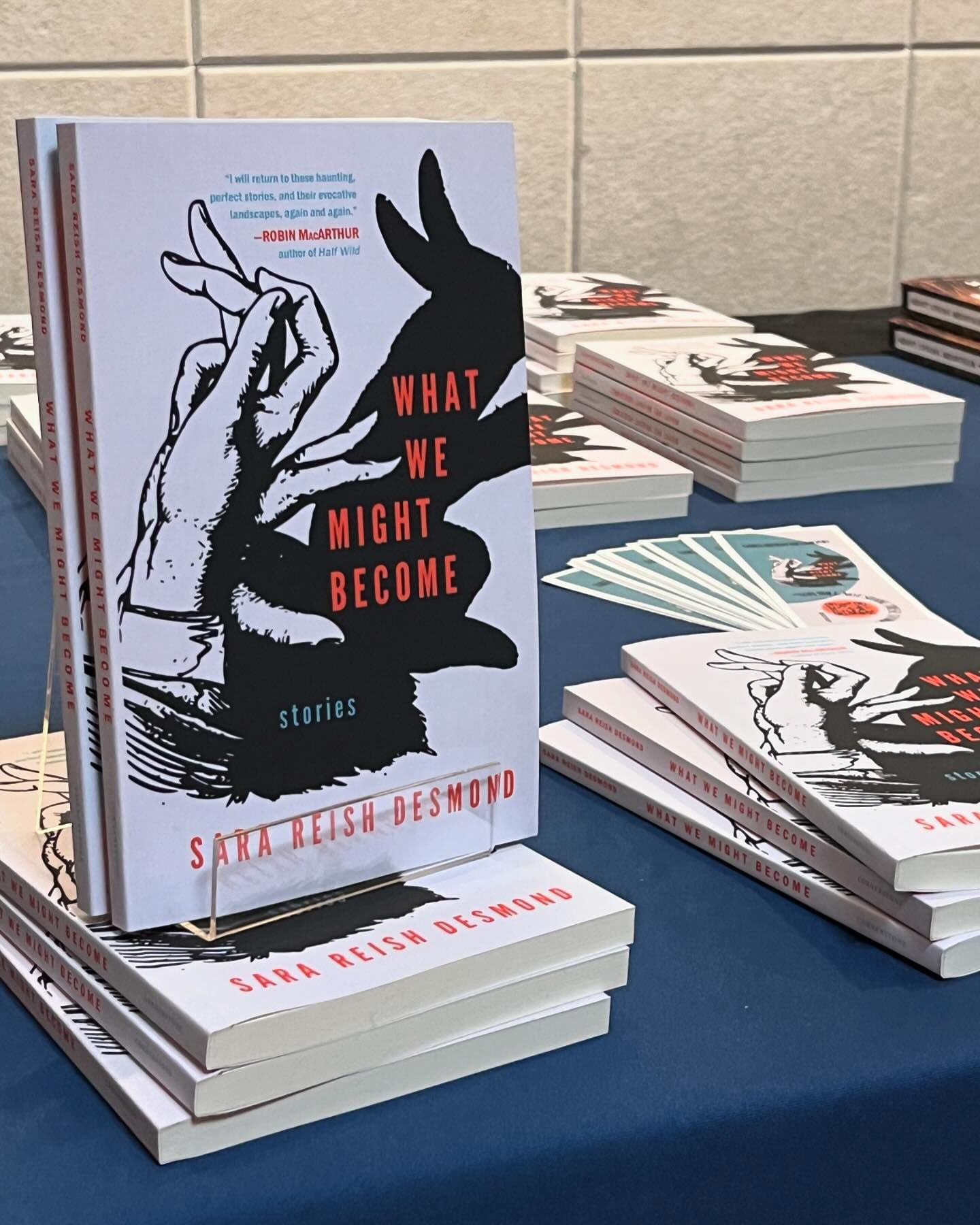
Photo from Sara Reish Desmond
Desmond explained that, while she has always known she wanted to write, it has taken her years to finally feel comfortable calling herself a writer. After graduating with an English degree from Kenyon College and working at a production company in Los Angeles, Desmond shifted to teaching high school English, which she continued doing when she moved to Boston a few years later. “I absolutely adored teaching,” she said, “To date, it’s the job I’ve felt most purposeful in, serving a wider purpose in the world and in the community.” Once on the East Coast, she pursued a Master of Fine Arts degree in writing at the Vermont College of Fine Arts, and eventually she left teaching to write full-time. “I would go back to teaching in a second if I felt like I could do both,” Desmond reflected.
Desmond has taught classes at Follow Your Art and she was a founding board member when it became a nonprofit. “I found Melrose to be a wonderful community of people where I wanted to raise my kids,” she said, “and I found it compulsive to want to be involved in a community like this.”
Desmond described her writing process as very organic: her stories usually begin with ideas for characters and their dynamics, and then the setting and plot coalesce around them. “Often, I can see the ending scene, where I want it to arrive,” she explained, “and from there I block out the rest of the scenes.”
A number of thematic threads that can be seen throughout the collection, so readers may be surprised to learn that Desmond had no particular theme in mind as she wrote each story. “Everyone’s obsessed with something,” explained Desmond, “whether you’ve discovered the origins of that obsession or not. Writing is a form of discovery, of trying to work out for ourselves what these things are all about. They reveal themselves to you even if you’re not consciously exploring them.”
As Desmond assembled the stories that make up What We Might Become, she found that every story included some kind of liminal experience - a moment when someone is on the cusp of something, hovering between two states, or on the verge of transitioning from one thing to the next. And other themes began to emerge, as well.
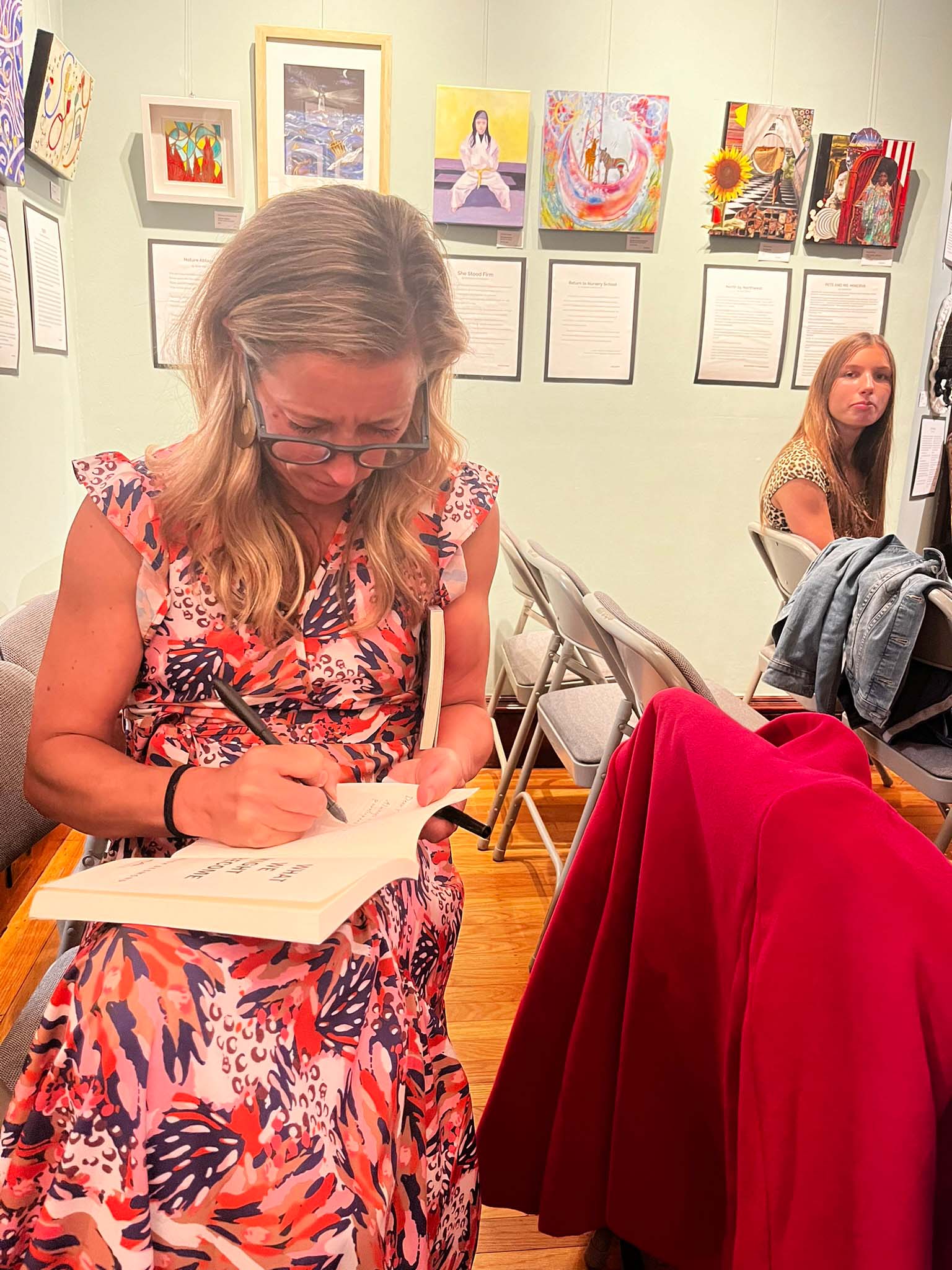
Photo from Sara Reish Desmond
Desmond noted that she is especially interested in the state of adolescence, and the experience of teenage girls. “I’m very curious about the adolescent space,” she said, “because I’m curious about liminality, and threshold experiences, threshold characters, and adolescents are the most representative of that experience. They’re neither adult nor child; they have their feet in both worlds.”
The relationship between parent and child is also prominent in several stories in the collection. “I think about this a lot,” Desmond reflected, “I grew up in a time when children didn’t have much agency, when parents were more feared, and the hierarchy was very clear. Generationally speaking, children these days have much more agency, for better or for worse, and parents have roles in balancing that, and creating paradigms where there is full disclosure about things.”
In some stories in the collection, a parent sharing their experiences with their adolescent child is depicted as freeing, or creating a stronger bond between the two. In others, it comes across as selfish: a parent burdening their child with painful knowledge they should have been shielded from. “People are incredibly dynamic and multifaceted,” Desmond went on, “and we struggle to find ways to share aspects of those selves across generations as well as within them. I’m fascinated by what we choose to withhold and what we choose to share.”
Throughout the collection, there is also a sense of regret, or longing for alternate possibilities. “I come from a place of ‘what if?’ a lot,” Desmond explained. “It’s a very rich question for me to ask myself.” Sometimes she revisits moments in her own life, or considers choices her characters make, and imagines how things might have gone differently. In some of the stories, this exploration manifests as transgression: A man who toes the line between friendship and infidelity. A woman who walks inside her neighbors’ houses without invitation. A man who can’t resist the pie cooling on his neighbor’s windowsill.
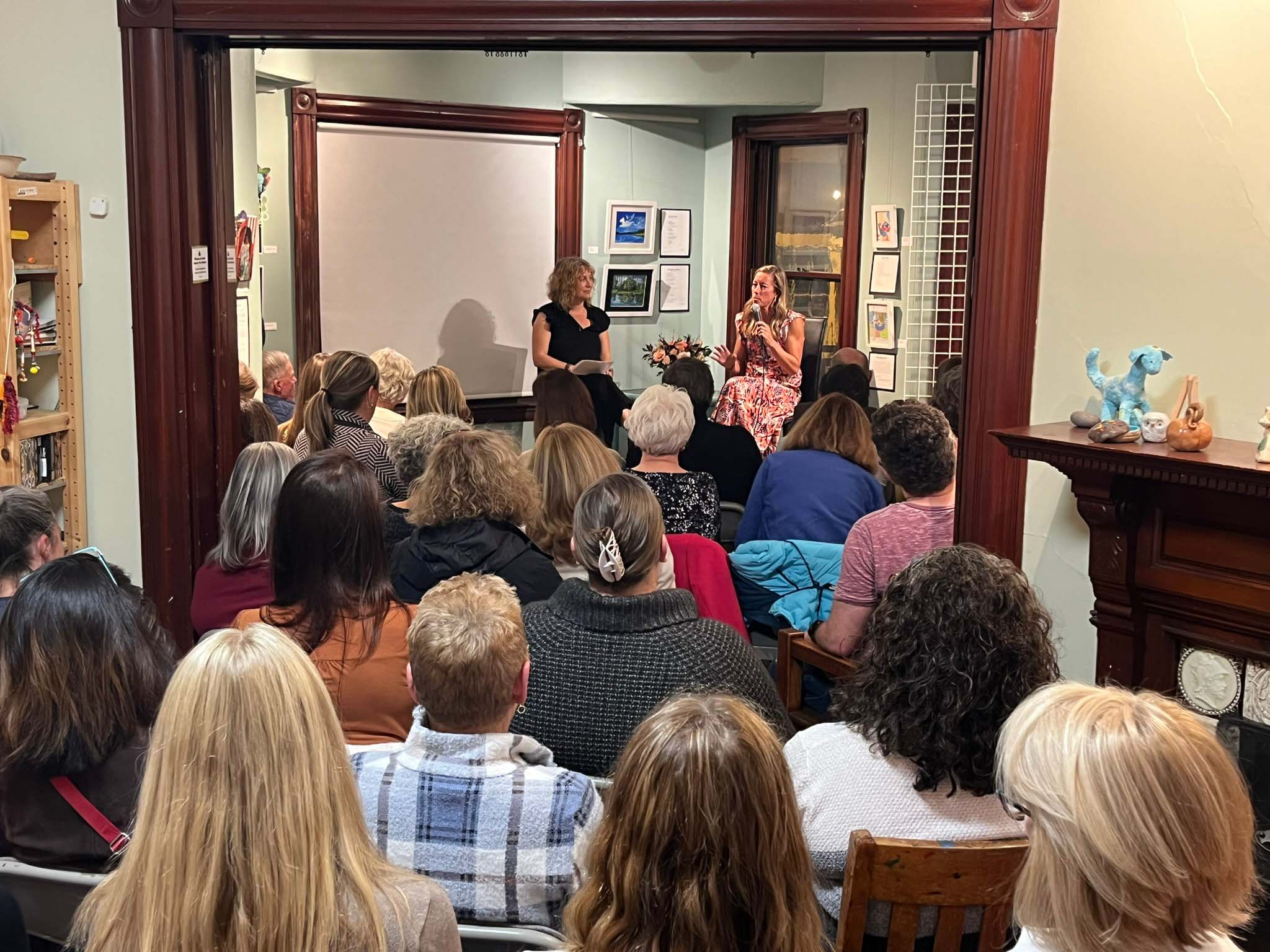
Photo from Sara Reish Desmond
As a reader, Desmond loves speculative fiction and magical realism, and although most of the stories in this collection are heavily grounded in realism, science fiction and fantasy elements are subtly sprinkled throughout a number of stories. “I’ve always loved the possibilities that magical realism offers us, allowing us to imagine other planes of being,” she said. “It’s a huge ‘what if?’ question: what if there are other realities? Magical realism is like the sluice gates, the sliding doors onto those other worlds.”
The narrator in “The Dwindling” is the mother of a child who is part-computer. “That came out of a fear of AI, these platforms that are transforming the world,” Desmond said. “Children today are acting like algorithms anyway, from all the time they spend on their devices.” The imagined technology in this story, which doesn't seem so far out of reach for today's science, provides promise and reason for optimism - and ultimately, fear and heartbreak.
“C3PGirl,” the other explicitly speculative story in the collection, features a teenage girl who is part machine in another way: reconstructive surgery has left much of her body made of metal. And in “Pie,” a man imagines himself as a bear, and at the conclusion, the reader is left wondering whether he hasn’t, perhaps, actually taken on some aspects of a bear. “I’m curious about what this world can’t provide us,” Desmond reflected, “the things you can imagine into reality.”
While the settings in many of the stories aren’t clearly identified, there are landmarks sprinkled throughout that Melrose readers will recognize: Spot Pond; driving down I-93 into Boston; the Sheepfold Dog Park in the Fells. “Melrose is my rendering and understanding of suburban America,” explained Desmond. “When I think of suburbs, I will probably always think of here.”
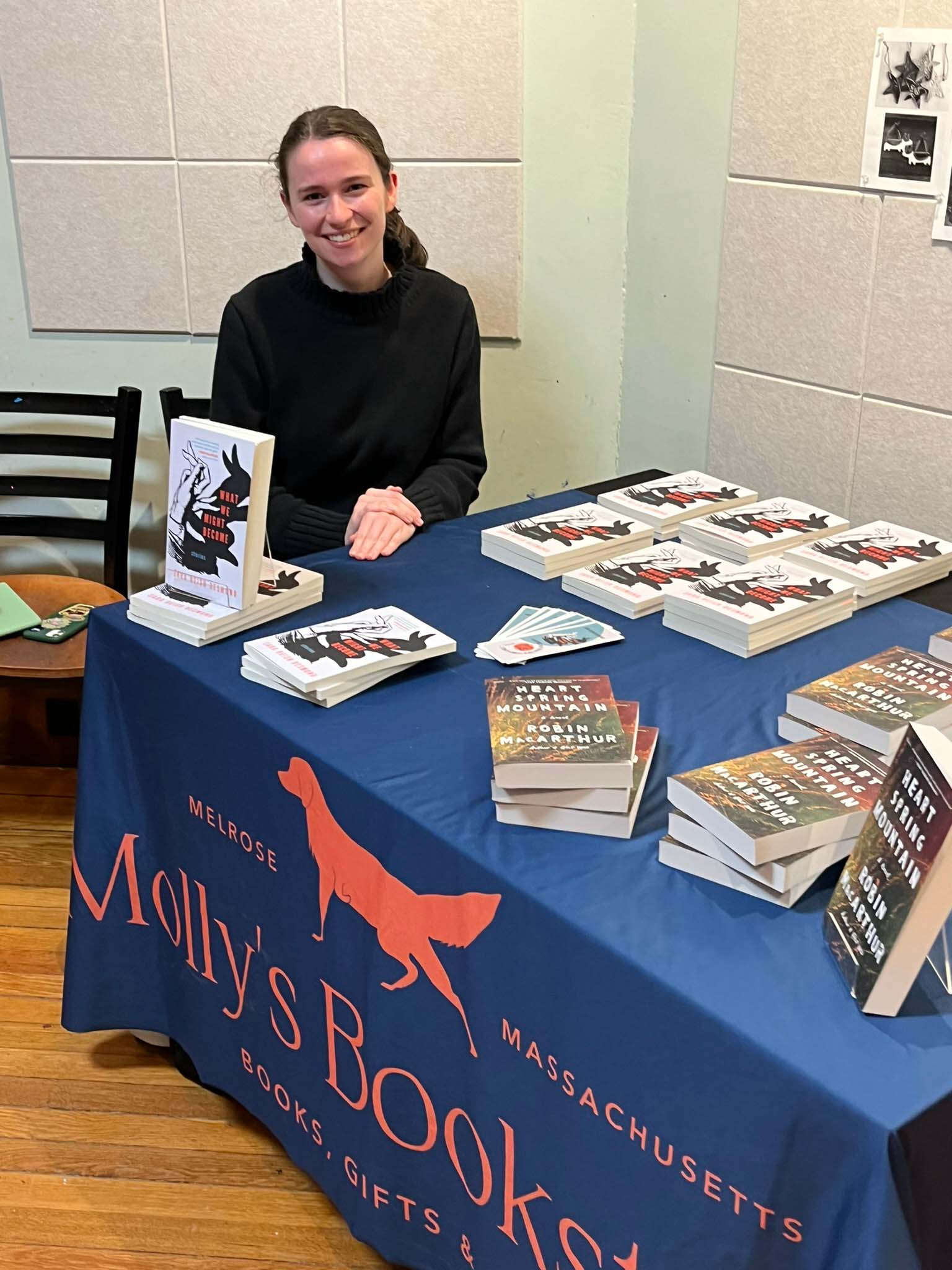
Molly's Bookstore selling copies of What We Might Become at the book launch
Photo from Sara Reish Desmond
“The Unseen,” by contrast, takes place in the town Desmond grew up in, in central Pennsylvania. “My place of origin is interesting fodder for exploration in my writing,” she reflected. While many of the stories are narrated by and focus on women, “The Unseen” features a father reflecting on his failure, as an adolescent, to recognize the danger a friend was in. “It was important to have this in a male perspective,” Desmond reflected, “because internalizing blame and shame is not as common a thematic trope for men, and I wanted to explore that in a sensitive way.”
The stories in the collection feature a range of narrators with different identities and experiences. “It’s my job as a fiction writer to explore all of the things I’m curious about,” Desmond reflected, “but there are right and wrong ways to do that. I’m extremely conscious and sensitive to any ways of narrating that toe a line of lack of awareness or sensitivity - a lack of humanity.” “Some Small Act of Compassion,” which features a white male narrator becoming obsessed with his Chinese immigrant neighbor, is explicitly, Desmond noted, “a story about cultural expectations and fetishization,” and about what happens when the narrator makes presumptions about his neighbor, “and he gets it wrong.”
As for what’s next, Desmond shared that she’s working on a new story that she calls “the dog story.” “I’m really curious about animals,” she explained, “and the primal communication we have with animals.” And with her daughters growing up, Desmond continues to find motherhood and the weighty questions that come along with it to be fertile ground for exploration. “‘Is it good enough?’ is a question that has a lot of gravitas when you’re a parent,” Desmond reflected. “That’s not an obsession I will write out of anytime soon.”
Visit Sara Reish Desmond’s website to see her upcoming book talks and signings. You can pick up a copy of What We Might Become at Molly’s Bookstore.

Follow Us: